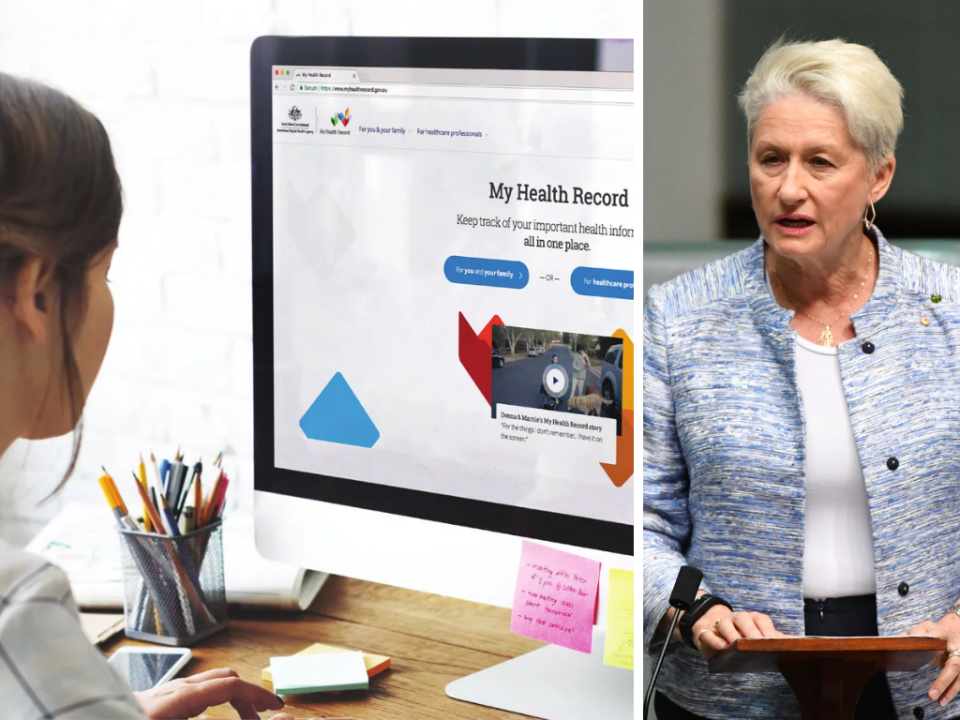“Some patients may even die”: GPs warn against My Health Record ahead of looming 31 Jan deadline

As the 31 January deadline to opt out of My Health Record approaches, doctors are sounding the alarm once more over the controversial system that some claim could even cause patient death.
My Health Record is an online summary of all your health information held by the government. It aims to be a ‘one-stop shop’ for patient records and data, accessible by registered healthcare providers involved in your care.
Over a million Aussies have already opted out of the scheme which rural doctor and Flinders University senior lecturer Tim Leeuwenburg has described as a “shambles”.
It’s also been flagged by medical practitioners, industry experts and academics alike for its potential susceptibility to hackers, availability to third parties without users’ express consent, and insecure protection.
Moreover, because a patient gets personal control of their record, they can pick and choose what information goes in there – meaning a patient’s MHR is not required to be a complete picture of their medical history.
On 14 November last year, Health Minister Greg Hunt bowed to public pressure and extended the deadline to 31 January 2019.
After this date, 17 million Aussies will have an MHR account automatically created for them, although new laws mean Aussies are now able to permanently delete their record at any time. Nearly 7 million Australians already have an MHR.
A number of other amendments have since been made to safeguard patient privacy: insurers and employers will now be barred from access, and law enforcement agencies will not be able to access MHR data without a warrant.
But as Thursday approaches, GPs are again warning about the risks of the scheme.
MHR may lead to ‘inappropriate treatment’, lawsuits and IT issues
Doctors Reform Society and University of Newcastle School of Medicine and Public Health academic Dr Robert Marr has highlighted the potential for fatalities due to inaccurate records.
“Medical record inaccuracies when used by a doctor, who doesn’t know the patient, or one of the 300,000 health workers who will have access to everyone’s My Health Record from 1st February, will result in some patients receiving inappropriate treatment,” Dr Marr said.
“Some patients may even die from the inappropriate treatment.”
Doctors as high profile as Wentworth MP Kerry Phelps have also spoken out against the health record system.
“GPs I talk to are furious about it,” she told the Sydney Morning Herald, adding that she is seeking legal advice about how to handle patients who haven’t opted out.
Phelps is calling on the government to protect GPs from potential lawsuits if patients suffer adverse reactions from being treated by a doctor working off incomplete or incorrect My Health Record information.
Health issues was a major pillar of Phelps’ successful Wentworth election campaign.

Australasian College of Emergency Medicine Simon Judkins added that many medical practices were still using old IT systems and there was a lot of catching up to do.
“Many places are still relying on handwritten notes and using faxes to communicate medical records,” he observed.
“We’d like to see that progress, because of the benefits for emergency physicians and staff in being able to access people’s health records in emergency.
“It needs to be much more user friendly.”
AMA: My Health Record ‘not the actual solution’
Speaking to ABC Gold Coast in November last year, Australian Medical Association president Tony Bartone indicated that while the scheme was “still not the best thing since sliced bread”, it had already clocked up nearly $2 billion worth of investment and time and was nonetheless “the best thing available at the moment in this space”.
“There are multiple people ready to develop applications, to develop tools, to develop various other modalities that are going to enhance the Record, in terms of the communication of data between patients and their doctors, between patients and the practice, between various parts of practices.
“And the My Health Record isn’t the actual solution, but it’s going to be the enabler for many other things in this space, which are going to enhance communication and the patient service delivery, but also ensure that we reduce duplication of unnecessary tests in the system, avoid unnecessary errors of medication because of poor information handover.
“These are the things that we’ve been kicking around along the road for many, many years and not actually implementing a process, a way forward.”
Echoing Bartone’s sentiments, Australian Medical Association medical ethics committee Chris Moy said My Health Record was never intended to reliably or accurately reflect patient history.
“It’s basically a secure Dropbox folder – that’s all it is,” he told SMH.
“No, it isn’t a perfect record and doctors need to apply the same level of clinical suspicion as they already do. But the bottom line is that it’s better than what we have now, which is nothing.”
Make your money work with Yahoo Finance’s daily newsletter. Sign up here and stay on top of the latest money, news and tech news.
Now read: The deadline for My Health Record has been extended — here’s what you need to know
Now read: Domestic violence survivors can end tenancy without penalty
Now read: 5 major finance trends businesses can expect this year

 Yahoo Finance
Yahoo Finance 
